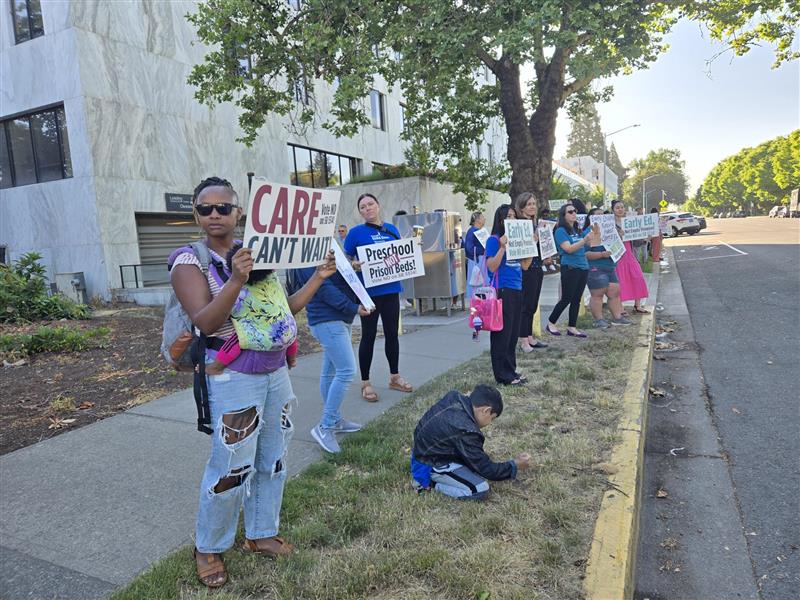
Early Childhood Coalition Announces 2026 Policy Priorities
In 2026, providers, families, and advocates call on the Oregon Legislature to stabilize essential early learning and care services that thousands of Oregon children and families rely on.
The Oregon Legislature convened in Salem on Monday, February 2, launching a five-week legislative session that will shape state policy for the year ahead, including decisions that will affect young children and families.
As the 2026 short session gets moving, Oregon’s Early Childhood Coalition (ECC) has announced its legislative agenda, outlining policy priorities aimed at restoring funding and preventing cuts to essential early childhood programs.
Even with coordinated advocacy efforts to halt cuts in 2025, the Oregon Legislature passed SB 5514 — the Department of Early Learning and Care budget — reducing funding by $45 million for early childhood supports across several early childhood programs.
This year’s agenda addresses those cuts, with early childhood advocates calling on lawmakers to restore funding and prevent further cuts in the 2026 session. This includes restoring $10-$20 million in cuts, including:
- Restoring the Oregon Prenatal to Kindergarten (OPK) budget to the Legislatively Adopted Budget
- $4 million to Preschool Promise; for inflationary increases
- $0.7 million to Healthy Families Oregon, plus $0.5 million that can be repurposed within DELC; for inflationary increases and to undo program cuts
- $0.5 million to Relief Nurseries; for inflationary increases
ECC partners are seeking investments in services that support healthy child-caregiver relationships in the early years. Strong relationships in the first 1,000 days of a child’s life are foundational to development. Evidence-based programs, such as Family Partnership home visiting strengthen a child’s earliest relationships by supporting parents and have been show to improve prenatal health, school readiness, and child safety.
Advocates have also been collaborating with Senator Lisa Reynolds and Oregon Health Authority to support technical fixes to doula legislation passed in 2025.
Research shows that investments in early childhood education, family supports, and systems-level policy lead to better outcomes for children, stronger communities, and long-term economic benefits.
The priorities in the 2026 ECC Legislative Agenda reflect a shared commitment among early childhood providers, families, and advocates to invest in the earliest years of children’s lives.
Read the full 2026 agenda below or view the PDF.
Stay informed by joining our advocacy email list and following key legislative updates.
Oregon Early Childhood Coalition (ECC) envisions an Oregon where all children experience high quality early learning and care, and where the expertise of families and children drive policy and investment. Learn more.




